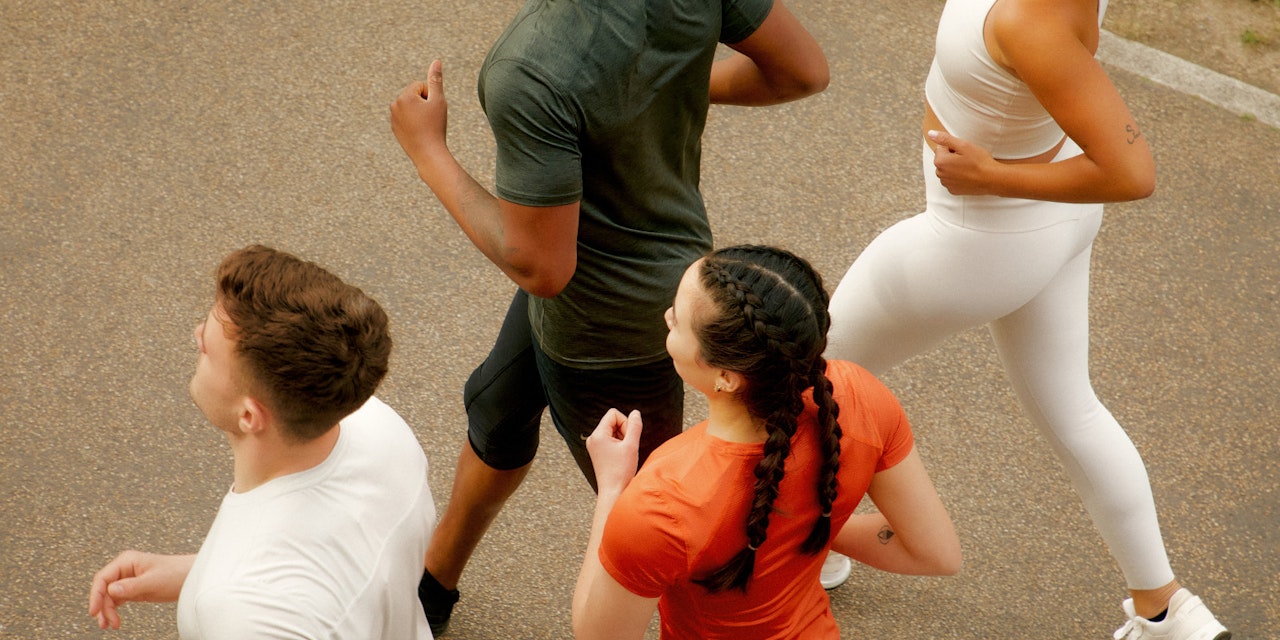Optimizing Your Workouts with Intermittent Fasting: Maximizing Fitness Results
How to plan your exercise routine when doing intermittent fasting
- Published: 8/16/2023
- 3 min. read

- Published: 8/16/2023
- 3 min. read
Fasted workouts are a hot topic in the nutrition and fitness world, with proponents praising its fat burning and fitness level enhancing benefits. Maximize your fitness results and your potential to increase fat loss and muscle gain by learning how and when to eat and workout.
Intermittent fasting and exercise: is it right for you?
Does skipping fuel before you get fit really help you reach your goals faster? Before we dive into the best ways to optimize your workouts with intermittent fasting, it’s good to consider whether or not it's right for you.
Fasted workouts are, just as the name describes, exercising while fasting. This is considered to be about 10-12 hours after your last meal. So say for instance you finished dinner at 7pm, then you could do a fasted workout after 5am.
Intermittent fasting and exercising while fasting increases the breakdown and usage of glycogen, or stored glucose. Once glycogen gets used up, the body shifts to burning fat for energy (1). So if you go to bed after dinner and wake up and head straight to your workout class, it may increase your fat burn.
However, some studies have shown body composition doesn’t change between people who worked out fasted versus those who ate before exercising (2). Some experts also argue that the lack of energy will reduce the intensity and effectiveness of the workout.
Another thing to keep in mind is, when it comes to our physiology, men and women have some differences that can affect how our bodies function with fasted workouts. Women experience more hormonal fluctuations, due to monthly menstrual cycles, which may cause more blood sugar crashes and fatigue. During the luteal phase of the menstrual cycle, more energy is required so fasted workouts can be more challenging (3).
Whether a fasted workout is right for you or not depends on your body, your goals, and how it makes you feel. To prepare yourself for the best results, you can focus on fueling your body with wholesome foods during your eating time and specific exercises.
Optimize your fasting fitness results
Wholesome dinner
In general, a balance and quality of good foods throughout the day is most important for overall health. But when it comes to specific workout goals and more intense workouts, nutrition is even more important. If you’re doing a fasted workout the next day, make sure you fuel with a balanced meal the night before, such as this Salmon Sheet Pan Dinner Recipe or Sweet Potato Stew and make sure to hydrate.
Post-workout fuel
Studies show that the best post-workout meal or snack should contain a ratio of 3:1, carbohydrates to protein (4). That’s because carbohydrates provide glucose to restore and replenish energy stores, especially after a fast. Protein is important for repairing and rebuilding muscle. It’s also perfect for fasting because it can keep energy levels consistent and going all day. Try a homemade smoothie or rice cakes and eggs.
Exercise intensity
If your workout is at a low to moderate level such as walking, biking, easy tennis or swimming and less than about an hour or two, a fasted workout will likely be fine for you. If you’re going hard, such as with high-intensity interval training, spin, or heavy weight training, or working out for an extended period of time, you may want to consider eating a pre-workout snack for increased strength, endurance, and recovery (5).
Hydration
Hydration is super important for fasting and workouts. When glycogen is depleted, water and some electrolytes are also removed. When it comes to exercise, you lose fluids and electrolytes through sweat. It’s important to hydrate with water. For longer exercises (that last for more than an hour) electrolytes such as sodium, potassium, magnesium, and calcium are also needed for optimal performance and recovery such as these homemade hydrators.
Fine tune your intermittent fasting and fitness plan with the Lifesum app.
5 references (hide)
All of the content and media on Lifesum is created and published for information purposes only. It is not intended to be used as a substitute for medical advice or treatment. Users should always consult with a doctor or other health care professional for medical advice. If you have or think you are at risk of developing an eating disorder, do not use the Lifesum app and seek immediate medical help.